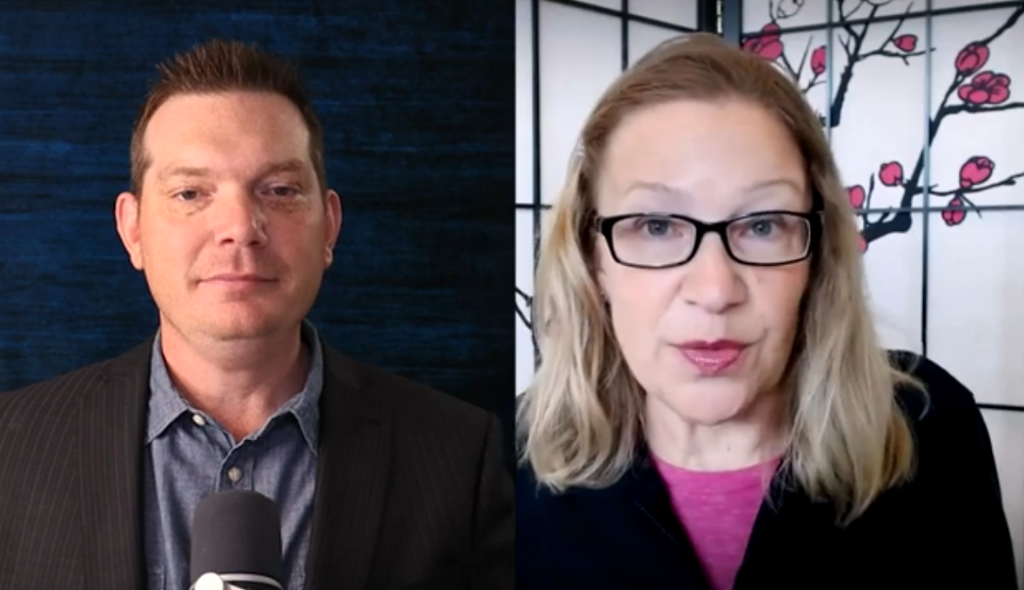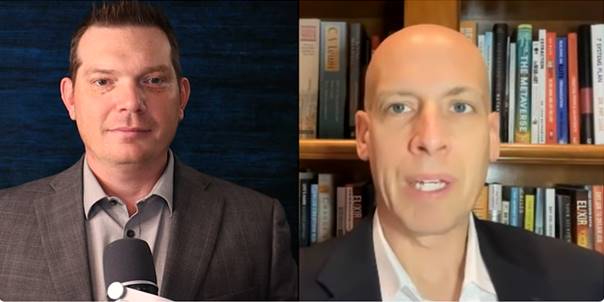Most entrepreneurs focus on scaling their businesses, but few realize that their biggest untapped asset is their intellectual property.
If you’ve ever had a great idea but weren’t sure how to protect it, monetize it, or turn it into a cash-flowing asset, you’re not alone.
In my conversation with Tony D’Angelo, the founder of Intellectual Capitalist®, we explore how entrepreneurs can leverage their knowledge, experience, and intellectual capital to create real wealth.
Tony has spoken at over 2,800 college campuses, authored best-selling books, and built a career helping others transform their ideas into valuable, income-generating assets.
As someone who helps entrepreneurs build long-term wealth through financial strategy and the Infinite Banking Concept®, I see intellectual property as a critical but overlooked financial asset. Just as a properly structured financial system can provide long-term security, so too can a well-managed intellectual property portfolio.
This conversation isn’t just about ideas—it’s about how to turn knowledge into an asset that works for you, just like your money should.
How Did Tony D’Angelo Turn Ideas into Profitable Intellectual Property?
Tony’s journey into intellectual property started when he recognized that universities weren’t teaching real-world financial literacy and personal growth. He saw a gap in education and turned it into a business model—by creating and licensing educational content.
His first major success came with Chicken Soup for the College Soul, which opened his eyes to the financial power of intellectual property. However, he quickly learned that simply having a great idea wasn’t enough—protecting and monetizing it strategically was the real key.
“I used to think that having a great idea was enough to succeed,” Tony recalls. “But the real game-changer was learning how to protect and scale those ideas into cash-flowing assets.”
For entrepreneurs and business owners, this lesson is critical. Intellectual property isn’t just for authors and speakers—it applies to anyone who has unique insights, processes, or expertise that can be packaged into a profitable asset.
From my experience working with entrepreneurs, IP is often just as valuable as real estate, stocks, or businesses—but it’s the most overlooked asset class. Just as I help my clients create a financial system that recycles their money, the same principle applies to IP: you want to structure it in a way that creates recurring value rather than a one-time payout.
How Entrepreneurs Can Treat IP Like an Asset for Long-Term Wealth
One of the biggest mistakes business owners make is failing to recognize intellectual property as an asset class.
From what I’ve seen working with entrepreneurs, many underestimate the wealth potential in the knowledge they’ve accumulated over the years. The difference? Most entrepreneurs don’t realize they already own valuable IP—they just haven’t structured it to generate wealth.
“The biggest misconception is that IP is only for tech companies or big corporations,” Tony says. “But in reality, every entrepreneur has intellectual property—they just don’t see it as an asset yet.”
Here’s how to shift that mindset and treat IP like an asset:
Identify What You Already Own
- Your unique processes, methodologies, frameworks, and insights can be monetized.
- Example: One of my clients, a business coach, developed a proven framework for sales conversion. Instead of just using it internally, we helped him license it to other consultants, turning it into a recurring revenue stream.
Protect Your IP Before Scaling
- Trademarks, copyrights, and domain ownership are the foundation of a strong IP strategy.
- Just like having a proper financial structure prevents wealth from leaking, locking down your IP prevents competitors from taking your ideas.
Monetize Through Licensing, Not Just Selling
- IP should generate ongoing cash flow—whether through courses, royalties, subscriptions, or partnerships.
- Tony’s WealthyGrad program teaches students financial literacy while allowing him to scale revenue passively.
- Similarly, the Infinite Banking Concept® allows entrepreneurs to recapture their own money and put it to work multiple times—IP works the same way.
Economic Disruptions: Turning Obstacles Into Opportunities
One of the things I admire most about Tony is his ability to pivot during major economic disruptions.
- 9/11 shut down live events, so he moved into licensing and digital education.
- The 2008 financial crisis forced businesses to rethink their financial education strategies, which allowed them to double down.
- COVID-19 wiped out in-person conferences, but because he had already built a digital model, he sustained revenue while others struggled.
“Every economic downturn has actually made my business stronger,” Tony shares. “Because I learned how to structure my IP in a way that could survive any crisis.”
This mirrors how I help entrepreneurs prepare for financial uncertainty. Just like you wouldn’t leave your financial future unprotected, you shouldn’t leave your IP exposed, either. The right systems—whether in finance or intellectual property—ensure you stay in control no matter what the economy throws at you.
This is also related to what Kim Butler shared during one of my sessions with her about the 2008 financial crisis and how challenging that time was.

The Role of Blockchain in Intellectual Property Protection
I previously discussed IP protection with Kary Oberbrunner, who has pioneered blockchain-based intellectual property protection.
His insights on how blockchain is changing the game for IP protection align closely with what Tony and I explored in this conversation.
“The future of intellectual property isn’t just about securing patents or trademarks,” Tony says. “It’s about leveraging new technologies like blockchain to ensure creators get paid and their work isn’t stolen.”
Blockchain technology allows creators to establish indisputable ownership of their content, making it harder for bad actors to steal ideas.
Kary’s Instant IP system is a game-changer because it provides a low-cost, high-impact way for entrepreneurs to safeguard their work without expensive legal battles.

One simple way to check if your work is being used without permission? Set up Google Alerts for your brand name and key phrases from your content.
This free tool notifies you when your material appears online, allowing you to monitor potential misuse in real time.
For business owners I work with, this is another tool to protect their wealth and ideas at the same time. Just as proper financial planning ensures your money isn’t lost to taxes and fees, IP protection ensures your ideas aren’t lost to competitors.
Key Takeaways: How to Secure and Profit From Your Intellectual Property
- Your Knowledge is an Asset: Stop undervaluing what you know—it has financial potential.
- Protect What You Create: Register trademarks, copyrights, and domain names before someone else does.
- Monetize Smartly: Think licensing, digital courses, books, and subscriptions—not just one-time sales.
- Pivot in Uncertain Times: Every challenge creates an opportunity—be ready to adapt.
- Leverage Emerging Technologies: Blockchain and smart contracts are revolutionizing digital intellectual property protection.
For entrepreneurs who want to build financial resilience, understanding both money and intellectual property is crucial. My approach to financial strategy aligns with Tony’s insights on IP—it’s all about structuring assets in a way that works for you over time.
Want to discover how to take control of your financial future? Check out “Becoming Your Own Banker“.